Dentures Canning Vale
Our Denture Solutions
Our Denture Solutions
Our goal is to help you smile with confidence.
The denture solutions our dentists provide are designed to feel, look, and function just like natural teeth.
We provide both complete and partial dentures for:
- Traditional dentures
- Implant-support dentures
- Immediate dentures (temporary)
Denture Repair
If you’ve broken your dentures, we can also assist you with a comprehensive and timely denture repair solution.
We can usually organise a denture repair in as little as a 1-3 days. Please contact our team in Canning Vale to see how we may assist you.
It may also be necessary to replace your dentures if they are over 5 years old.
Ill-fitting dentures can cause irritation and a range of problems, so please contact us if you are concerned your dentures need to be re-fitted.

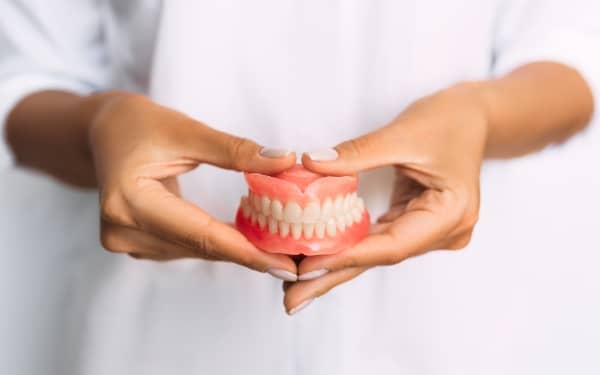
What Is the Process?
The process for creating and fitting your custom dentures is quite straightforward, and only takes a couple of steps. These are:
1. Impression
- Your dentist will create an impression of your teeth and use that to create a model.
- We then use that model to fabricate a custom denture.
2. Fitting
- We’ll schedule a fitting appointment to ensure a proper fit
- During the appointment, we will make any necessary adjustments
To start the process of creating your custom dentures, click the button below to book an appointment online with one of our friendly team members.
Associations
Our dentists are members of reputable dental associations, including the Australian Dental Association WA (ADAWA) and the Australian Health Practitioner Regulation Agency (AHPRA). We are also accredited by QIP, meaning our practice adheres to industry guidelines and regulations.
We accept all health funds, claimable on the spot for your convenience. We are preferred providers with HBF, HCF, CBHS and NIB, meaning you can maximise your rebate.
We also provide interest free payment plan options via The Tooth Market’s Fund My Dental. We also participate in government aided programs such as the Child Dental Benefits Scheme and provide top quality treatment for Department of Veterans’ Affairs (DVA) card holders.









Meet Our Team
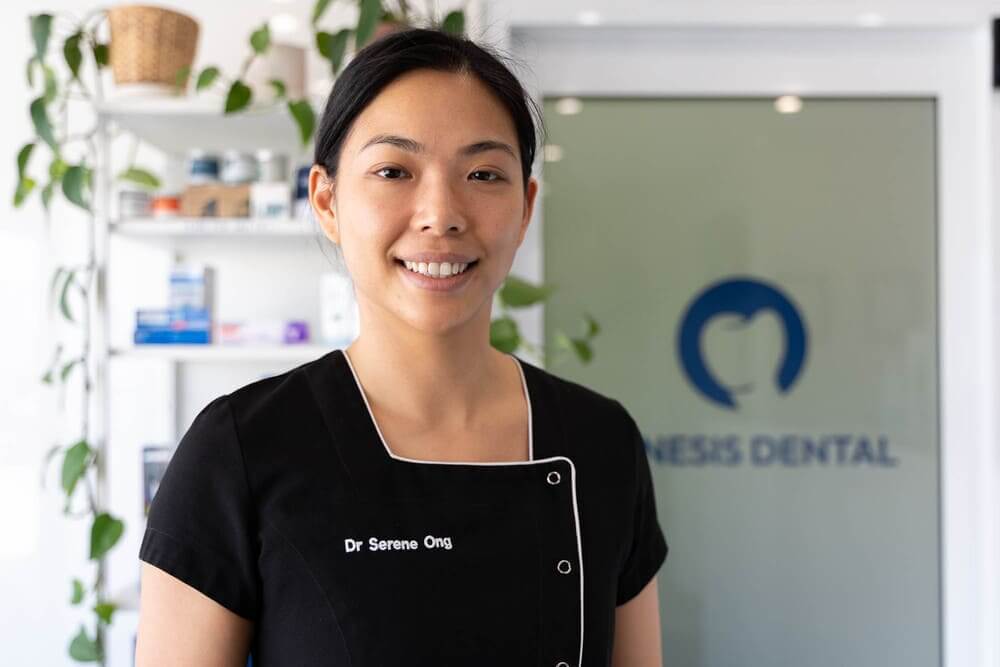
Dr. Serene Ong
Dentist

Dr. Ben Luu
Dentist

Dr. Ashleigh Furfaro
Dentist
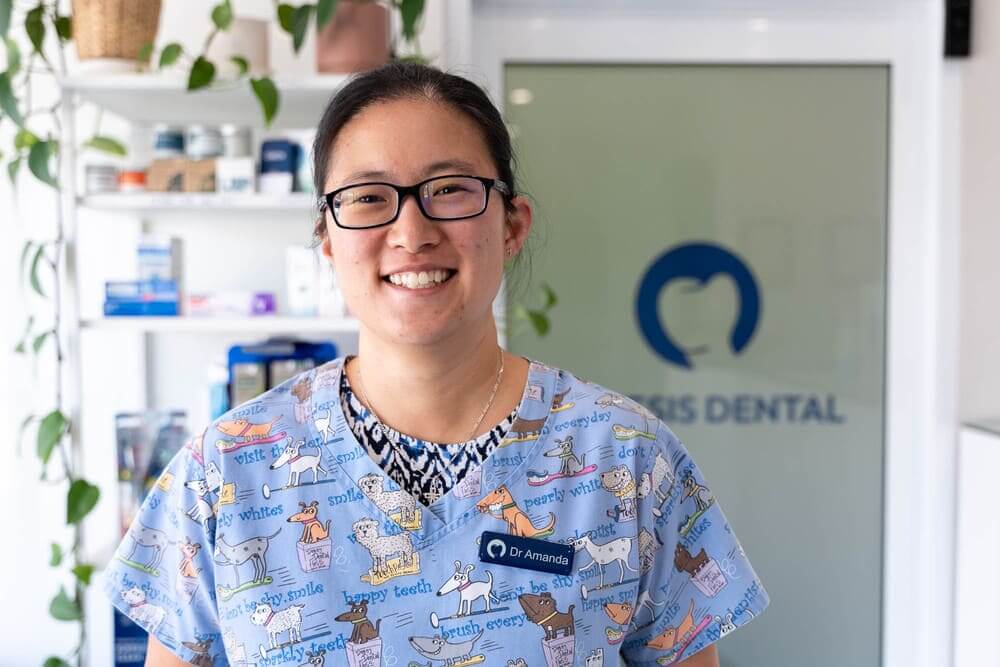
Dr. Amanda Lau
Dentist
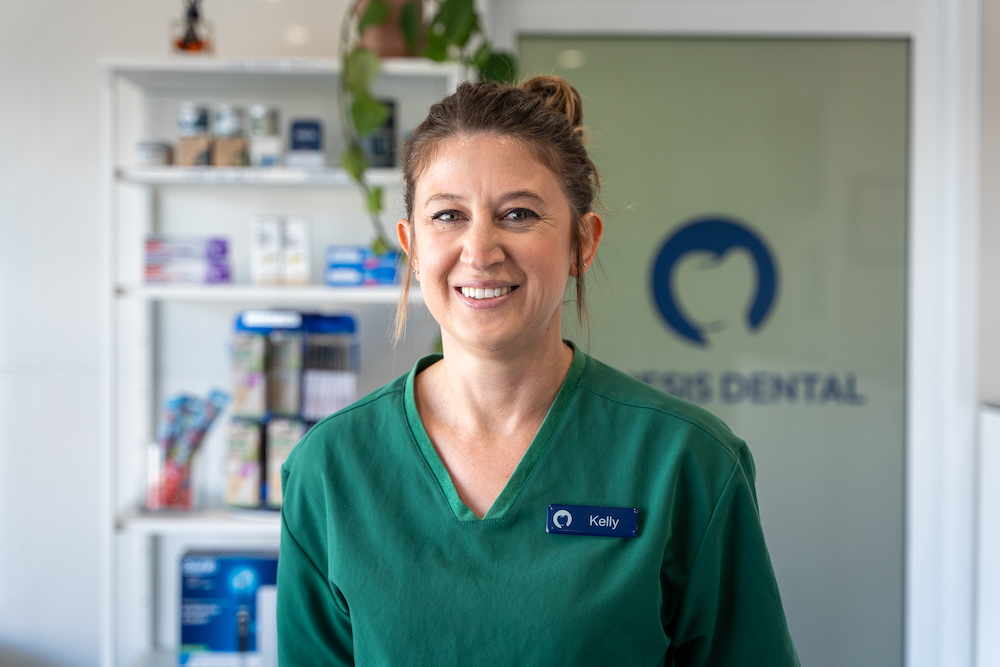
Kelly Jones
Dental Assistant
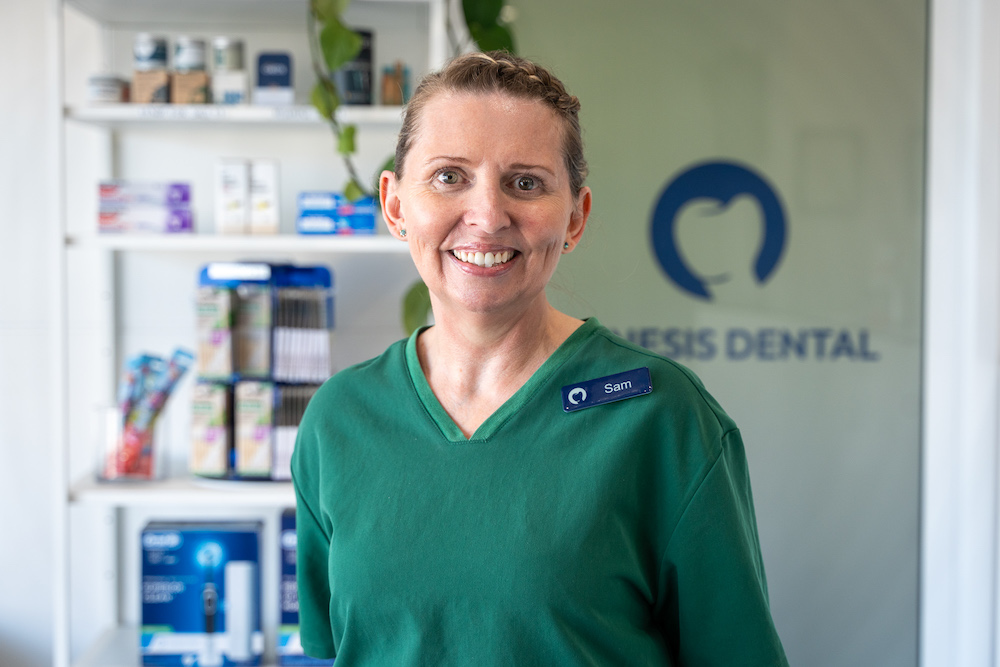
Samantha St Johnston
Dental Assistant
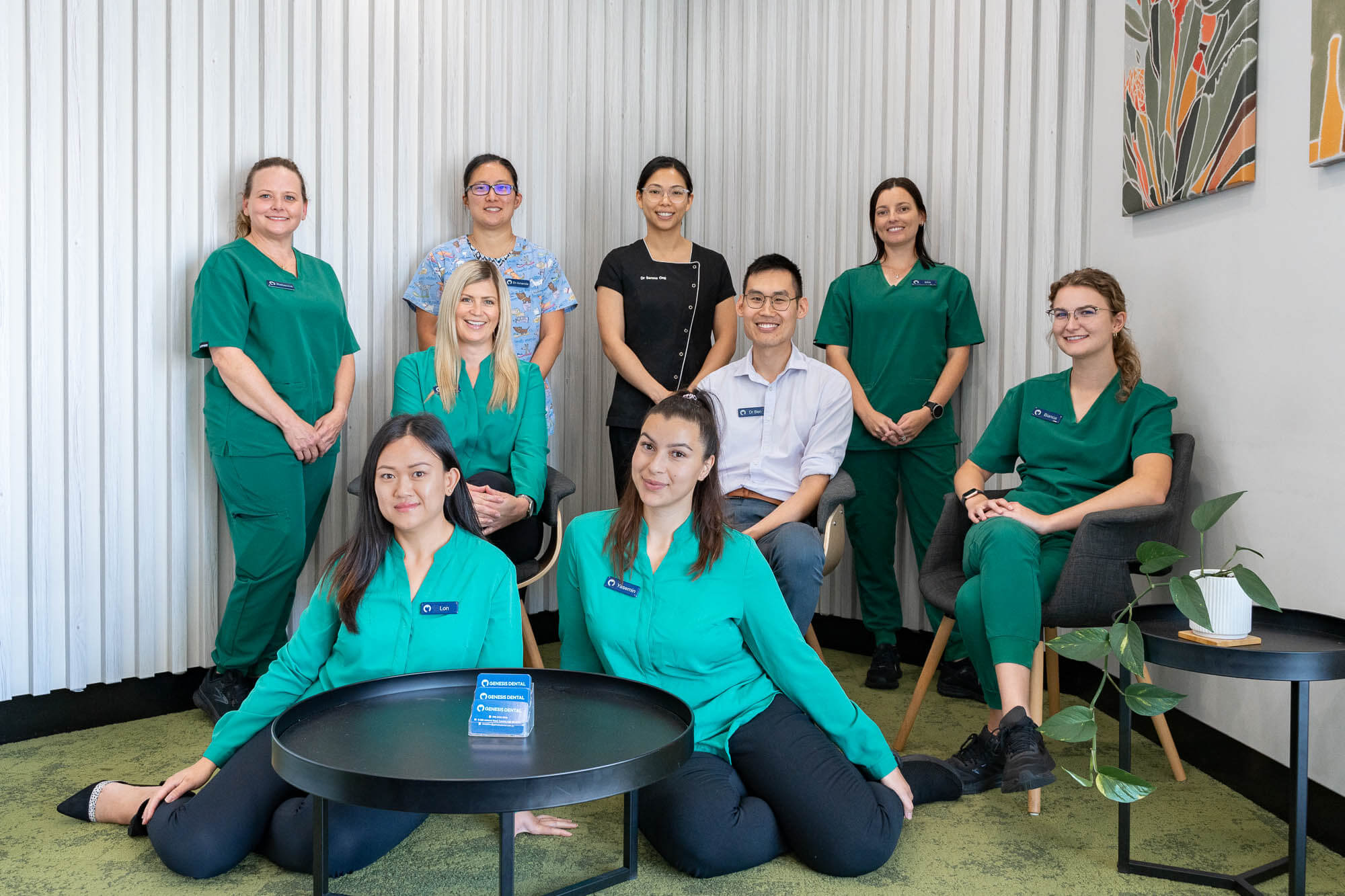
Why Choose Genesis?
As a trusted team of dental professionals, we are dedicated to delivering high-quality patient care.
Denture wearers require specific guidance and support to maintain their oral health, and with professional advice from our team, patients are better equipped to care for their dentures effectively.
We take pride in our team comprising Dr Serene Ong, Dr Ben Luu, Dr Alan Yeong, and Dr Ashleigh Furfaro. Each member of our friendly team possesses extensive experience and a commitment to meeting the unique needs of our patients.
Our dentists are passionate about ensuring that every appointment is comfortable and reassuring.
Your oral health and denture care deserve the finest attention – and that’s precisely what we aim to provide with our service.
FAQs
How can I take care of my dentures?
Practicing a daily denture cleaning routine is crucial for preventing problems and keeping your dentures bright.
Here are some important tips on how to care for dentures:
When not wearing your dentures, place them in a denture-soaking solution or a glass of cold water to keep them hydrated
- Limit consumption of foods such as beets, red wine, tomato sauce, coffee, and berries (rinse dentures immediately after if you do eat or drink any of these foods)
Maintain a regular brushing routine for your dentures, just as you would for your teeth
- Be delicate when handling dentures and avoid dropping them
See your dentist for regular checkups
- Do not use teeth whitening intended for natural teeth
Continue to gently brush your gums, tongue, and palate daily with a soft-bristled toothbrush
- Do not use hot water to clean or rinse dentures
Avoid soaking dentures in bleach or household cleaners
Treat stains right away
- Do not use regular toothpaste or abrasive cleaners to care for your dentures (choose denture-specific products or feel free to ask us for recommendations)
Avoid tobacco products
What are dentures?
Dentures are a plate or frame that is inserted into the mouth to house one or more artificial teeth.
They are an ideal solution if you have irreparable damage or missing teeth.
What are complete and partial dentures?
Complete dentures are made with a synthetic base that is custom-fitted to your gums, giving you a smile that looks and feels natural.
Partial dentures are removable artificial teeth that sit alongside the natural teeth and are secured in place by clasps.
What are traditional dentures?
Traditional dentures are a removable prosthetic device designed to replace missing teeth. They are custom-made to fit the upper and lower gums comfortably, relying on suction and sometimes adhesive to stay in place. Traditional dentures are typically made after any remaining teeth have been removed and the gum tissue has begun to heal, ensuring a proper fit.
What are implant-supported dentures?
Implant-supported dentures are a more stable alternative to traditional dentures, using dental implants as a foundation. These implants are surgically placed into the jawbone, providing a secure anchor for the dentures. This option is especially beneficial for those who seek a more secure fit and improved chewing efficiency, as it reduces the risk of the dentures slipping or shifting in the mouth.
What are immediate dentures?
Immediate dentures are designed and created before any remaining teeth are removed. They are fitted immediately after tooth extraction, which means you won't have to be without teeth during the healing process. However, as your gums and bone structure will change shape significantly during healing, immediate dentures often require more adjustments to fit properly in the long term compared to traditional dentures.
How do I decide what dentures are right for me?
The best type of dentures for you depends on several factors, including the health of your gums and jawbone, your lifestyle, and your personal preference. During your consultation, we'll discuss your options in detail, considering your specific situation to recommend the most suitable solution.
Are implant-supported dentures more expensive than traditional dentures?
Yes, generally, implant-supported dentures are more expensive upfront due to the surgical procedures required for implant placement. However, many find the additional cost worthwhile for the benefits of improved stability, comfort, and function. It's important to consider the long-term advantages and potential cost savings in terms of maintenance and replacements.
How long do they take to get used to?
The adjustment period varies from person to person. Most individuals begin to feel comfortable with their new dentures within a few weeks, but it can take a few months to fully adjust to eating and speaking with them. We provide guidance and support throughout this period to help you adapt more quickly.
Can I wear my dentures all the time?
While dentures are designed for daily wear, it's important to remove them at night to allow your gums to rest and to maintain good oral hygiene. Soaking your dentures overnight in a cleaning solution also helps keep them clean and free from bacteria.
How do I know if I need them?
If you're experiencing difficulties with chewing, speaking, or you have missing teeth, it might be time to consider dentures. These signs often indicate that your oral health could benefit significantly from denture fitting. We recommend booking a consultation to discuss your specific needs and explore the best options for your smile.
Can I eat normally with dentures?
Yes, you can! It might take a little time to get used to them, but soon you'll be able to enjoy most of your favourite foods again. We suggest starting with softer foods and gradually moving to harder foods as you adjust to your new dentures.
How do I care for my dentures?
Denture care is crucial for maintaining your oral health and the longevity of your dentures. It involves daily brushing, soaking them overnight in a cleaning solution, and handling them with care to avoid damage. Regular check-ups are also essential to ensure your dentures remain in top condition and continue to fit well.
What should I do if they break?
If your dentures break, become loose, or cause discomfort, it's important to see us as soon as possible. Do not attempt to adjust or repair them yourself, as this could cause further damage. We offer professional repair and adjustment services to ensure your dentures are comfortable and functional.
How often should I replace my dentures?
Dentures typically need to be replaced every 5 to 7 years due to natural changes in the shape of your mouth and wear and tear. Regular check-ups will help us monitor their condition and fit, ensuring you get the most out of your dentures.
Do they affect how I speak?
Initially, you might notice some changes in your speech, but this is completely normal. With a bit of practice and adjustment time, you should be able to speak clearly and confidently with your dentures in no time.
Can dentures be fitted to receding gums?
Yes, it is generally possible to be fitted for dentures even if you have receding gums.
To learn more, review our blog here: Can dentures be fitted to receding gums?
Are there any alternatives to dentures?
Yes, there are alternatives such as dental implants or crowns and bridges, depending on your specific needs and oral health. These options can offer a more permanent solution to tooth loss. We're here to discuss all available options to help you make the best choice for your oral health and lifestyle.
Have a Question?
If you have any questions, please feel free to get in touch with our friendly team via phone or the form below.